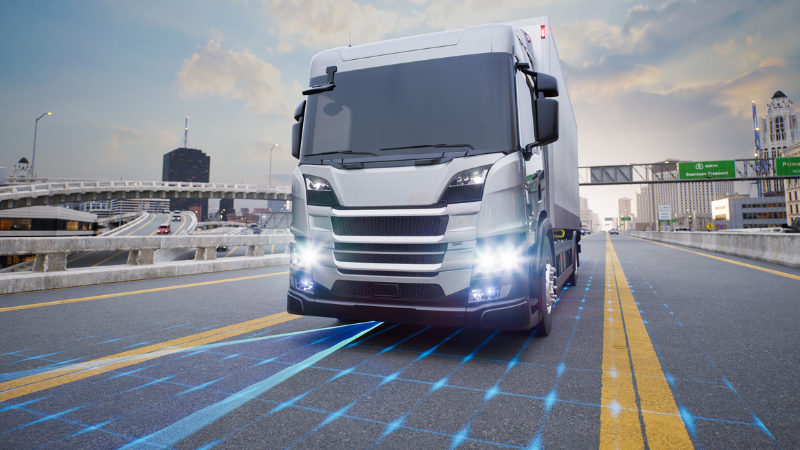
Food distributors have struggled for years to recruit enough drivers for their trucks, but unions representing the diminished labor pool are pushing back hard on the adoption of driverless vehicles as a solution.
Members of Teamsters Local 745 voted nearly unanimously this week to strike if contract negotiations with the Albertsons supermarket chain continue to falter. One major point of contention, according to media reports, is the possible use of driverless trucks to supply the stores.
Simultaneously, representatives of the Teamsters’ national office are lobbying Texas lawmakers to pass legislation that would require the presence of a human standby driver in what are technically known as autonomous vehicles, or AVs. The bill cleared an early hurdle when it was voted out of the House of Representatives’ Committee on Transportation.
The pushback comes as the freight company Aurora rolls out driverless trucks in Texas. The AVs are already making deliveries between Houston and Dallas, and Aurora plans to expand the scope to El Paso, Texas, and Phoenix, AZ, by the end of the year.
The company claims to be the first commercial freight company in the United States to use driverless trucks on public roads. It asserts that the AVs will not eliminate jobs, though it did not explain how it calculated the zero effect on employment.
The Teamsters and its local chapters are challenging that contention.
“There are hundreds of thousands of Texans who turn a key for a living,” Brent Taylor, President of Teamsters Joint Council 80 in Dallas and the main union’s Southern Region International Vice President, said in announcing support for the human-required legislation. “They have mortgages, medical bills, and families to support. We can’t let out-of-state billionaires steal their jobs with reckless automation. We must protect their livelihoods by passing this critical bill into law.”
The Teamsters also argue that AVs still pose a danger to pedestrians and other vehicles on the road. It points out that the vehicles are not allowed to forego a driver in bad weather.
Now matter how sophisticated the AV technology may be, it “will never match having a human behind the wheel,” asserted Robert Mele, President of Teamsters Joint Council 58 in Houston.
In addition to pushing legislation essentially outlawing driverless trucks, the Teamsters union is resisting a Texas bill that would limit the liability of haulers if one of their AVs was involved in an accident.
Aurora contends the technology guiding its driverless trucks is at least as capable as humans in avoiding accidents. Advances enable the guidance system to perform such superman feats as anticipating when another vehicle is likely to run a redlight or detecting the presence of a pedestrian in the dark, according to the company.
It also cites the 10,000 deliveries Aurora AVs have made over the last four years, covering some 4 million miles. In those tests, a standby driver was present to intervene in emergencies. None apparently arose.
No foodservice distributors are among the initial users of Aurora’s driverless trucks. One of the sector’s biggest challenges has been recruiting enough young newcomers to replace the current generation of drivers, whose average age is in the 50s. The challenge is complicated by the rigors of a living a life on the road and meeting stringent government safety requirements.
“Transforming an old school industry like trucking is never easy, but we can’t ignore the safety and efficiency benefits this technology can deliver,” said Richard Stocking, CEO of Hirschbach Motor Lines, a shipper of time and temperature-sensitive freight. The company is one of Aurora’s inaugural customers.
“Autonomous trucks aren’t just going to help grow our business,” he continued. “They’re also going to give our drivers better lives by handling the lengthier and less desirable routes."
As Managing Editor for IFMA The Food Away from Home Association, Romeo is responsible for generating the group's news and feature content. He brings more than 40 years of experience in covering restaurants to the position.